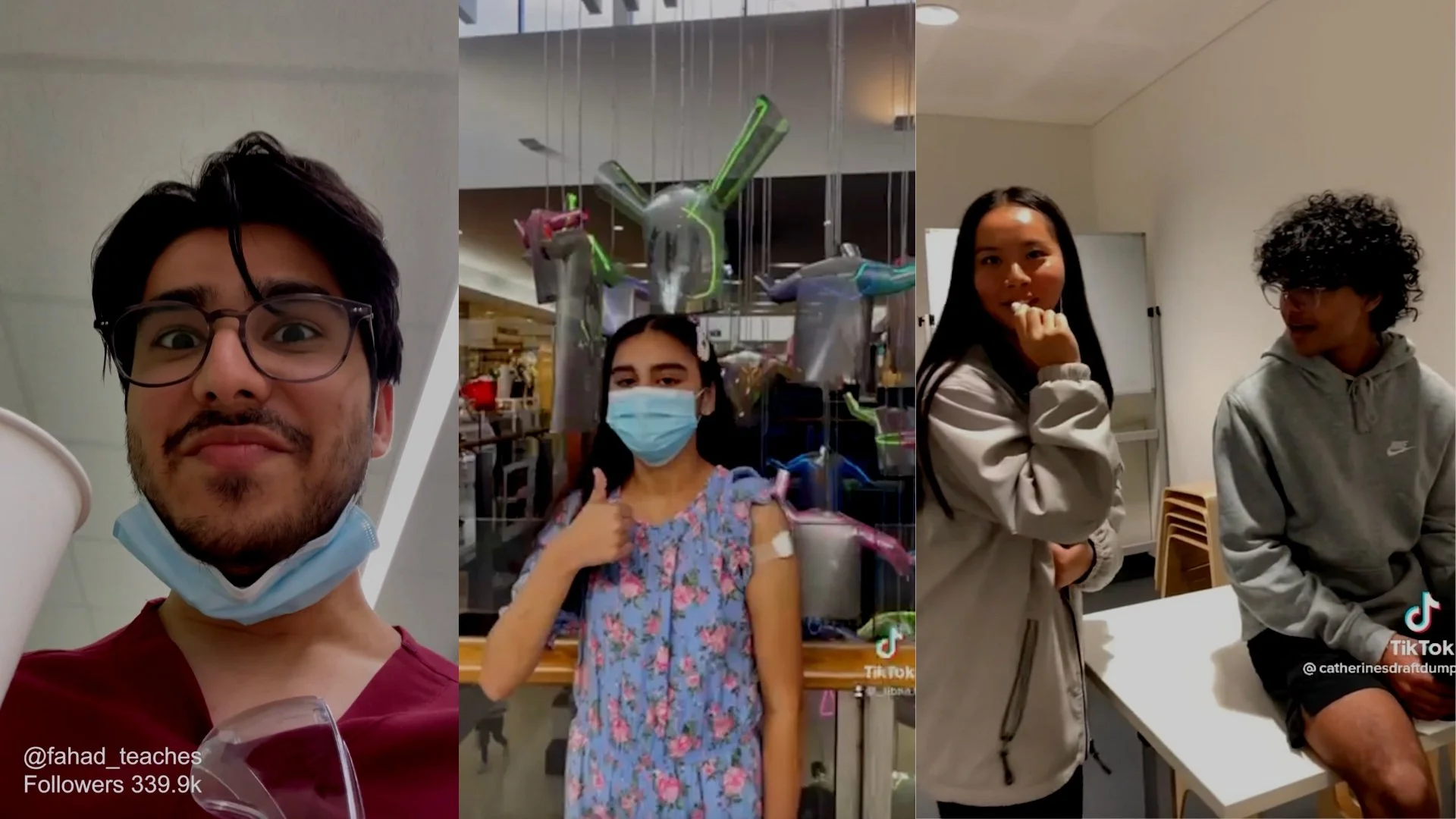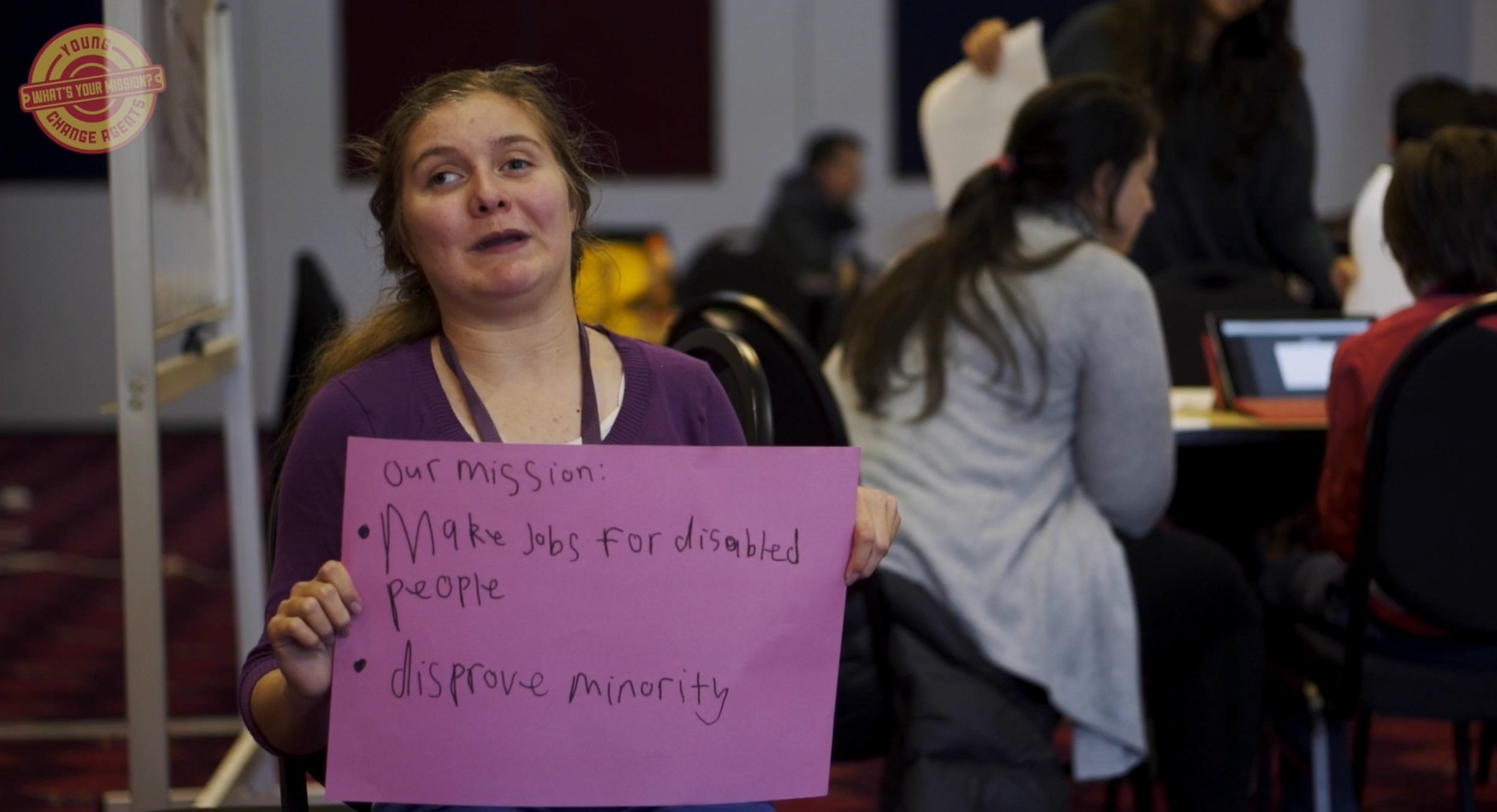
Exponential Good.
Young Change Agents are scaling for social change tomorrow.
Today.
Young Change Agents is a national NFP social enterprise driving innovation and entrepreneurship across schools nationally, with over 1,000 schools now running one or more of YCA's initiatives.
Our aim is to impact 2 million youths by 2030.
Results driven good.
We’re focussing on 3 key areas to maximise impact and exponentially generate outcome driven good.
Leveraging insights from our successful national programs, we’re creating the changemakers of tomorrow. Today.
-

Entrepreneurial education creates a generation of innovative problem solvers and job creators. Young Change Agents’ programs like Impact Boss and Digital Boss equip students with design thinking, lean startup and the digital skills that will fast-track their careers and give them the confidence to start, adapt and innovate tomorrow’s companies.
-

With programs like PlanetA Schools and the Climate Action Challenge, Young Change Agents is empowering youth to address current and emerging global challenges (such as climate change and natural disasters), develop resilience and innovate in the face of a rapidly changing environment.
-

Social entrepreneurship allows students to identify problems in their own communities and reframe those as opportunities through business. Our programs like Lighting the Spark foster community connection and inclusion especially for young people with a disability, Indigenous youth, CALD youth, regional/rural youth and youth living in socio-educational disadvantage.
Backed by industry partners:

To create the changemakers of tomorrow, we need to support their backers today.
Hear from our educators.
-

Gemma Beriman | Teacher Trainer | Miami HS, Gold Coast, QLD
-

Margaret O'Brien | CEO & Founder | Young Change Agents
-

Nicole Amey | Entrepreneurial Educator | Kepnock HS, Bundaberg, QLD

What we’re asking for.
1.Teacher professional development.
$500K will help us provide professional development to an additional 1,000 educators, building an Entrepreneurial Educators community across Australia.
2. Investment in technology.
$250K can help develop our proprietary technology (currently in MVP) to capture entrepreneurial student work, helping amplify their achievements and streamline assessment. At scale.
3. Online learning/PD series.
$250K can drive continued learning across our digital product/service, service-based business and product-based streams as well as across Government priority areas including agriculture, mental health, environment and disaster resilience
4. Careers education.
$250K can help elevate entrepreneurial career options for students with access to careers resources to supplement programs allowing youth to demonstrate the value of the skills attained to get and keep a job.
5. Indigenous and youth with disability
$1-3Million can help us scale delivery of our specialist youth entrepreneurial programs to reach more Indigenous youth via Lighting the Spark in partnership with local Indigenous organisations and youth with disabilities in partnership with NFP’s including Reframing Autism and Cerebral Palsy Alliance.
“To achieve our goal of impacting 2 million youths by 2030, we need to achieve exponential reach, ensuring maximum impact and return for the investment…”


-
Teachers and career advisors are time-poor. To be successful, entrepreneurial education needs to be embraced by school leadership, embedded within the curriculum and be incorporated as part of the teachers’ standard workload. Enterprising teachers who go beyond the curriculum to provide their students with these critical, entrepreneurial learnings, feel unrecognised, undervalued, and unrewarded, as well as overloaded with additional but necessary work. Schools need to be adequately resourced, and teachers must receive the necessary professional development in which the appropriate resources and tools can be provided; these efforts raise teachers’ confidence in teaching entrepreneurial methods, and elevate recognition of their efforts and achievements, while contributing to their professional development.
-
Youth need clear pathways to help nurture their growth and success in life. Entrepreneurial thinking and practice are core to developing innovative learners, and require more than inspirational speeches, attending one-off events, individual determination, or ‘luck’ to deliver these lifelong learning skills. Further, youth want their entrepreneurial learning and achievements to “count” and be recognised by higher education, their parents, future employers and their own peers.
-
It all begins with an idea. Maybe you want to launch a business. Maybe you want to turn a hobby into something more. Or maybe you have a creative project to share with the world. Whatever it is, the way you tell your story online can make all the difference.
-
Access to entrepreneurial learning is inequitable across NSW, and barriers are more pronounced in the rural and remote areas of the state. Aboriginal and Torres Strait Islander youth and youth from regional or remote communities and those experiencing disadvantage experience barriers to learning more severely than their metropolitan counterparts and lack the same exposure to visible role models. Private and Catholic schools are paying private providers and/or recruiting for specific innovation and entrepreneurial educator roles within their schools to offer a point of difference, exacerbating the uneven spread of entrepreneurial learning opportunities.
-
Entrepreneurial education needs to be introduced at the earliest appropriate age. Research continues to demonstrate that when entrepreneurial education is introduced early in life, prospects for advancement are enhanced. Students learn critical problem-solving and other transferable skills that can support them in both employment and life more broadly. When these learnings are introduced at a later age, young people find it more difficult to adapt to and apply this new style of learning. Developing the entrepreneurial mindset and innovative skill sets among youth has been recognised by schools and the NSW Government and recently led to the start of drafting an entrepreneurial curriculum for secondary schools in NSW.
-
Members of the entrepreneurial ecosystem strongly acknowledge that entrepreneurial education is a key ingredient in fostering a vibrant and resilient innovation ecosystem that supports a pipeline of new and emerging talent, bringing new products and services to market, and creating a more sustainable future for all. To create a sustained long-term impact, an integrated, ecosystem approach must be taken towards entrepreneurial education, with visible, equitable and accessible pathways for every child to grow an entrepreneurial mindset and advance the economic state of NSW. The key players of the ecosystem require access and touchpoints with the education system to remove perceived and real barriers and engage directly with youth and educators. We invite you to read the full Paper outlining the insights of each stakeholder group, as well as the characteristics of an ideal future state we identified and the recommendations to help us get there. We invite you to explore the insights from the stakeholder groups who, together, make up the fabric of the youth entrepreneurial education ecosystem. We are also excited to share a perspective on the ideal future state that has been envisioned from these insights and the recommendations that form the roadmap of how we can get there. If you are reading this, we know that you are likely to be a critical part of our youth entrepreneurial education ecosystem and we welcome you to partner with us on this journey.
Key Research Insights: Youth Entrepreneurial Education.
“Enterprising teachers who go beyond the curriculum to provide their students with these critical, entrepreneurial learnings, feel unrecognised, undervalued, and unrewarded, as well as overloaded with additional but necessary work.”

Contact us.
Margaret O'Brien
CEO & Co-Founder
Young Change Agents
0452 27 69 27
margaret@youngchangeagents.com








